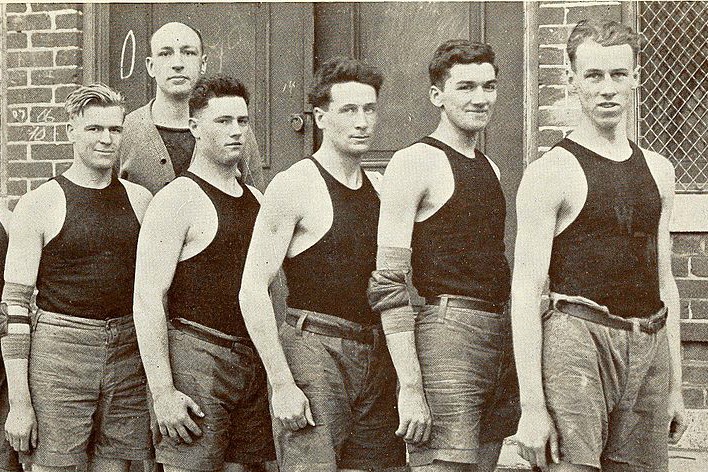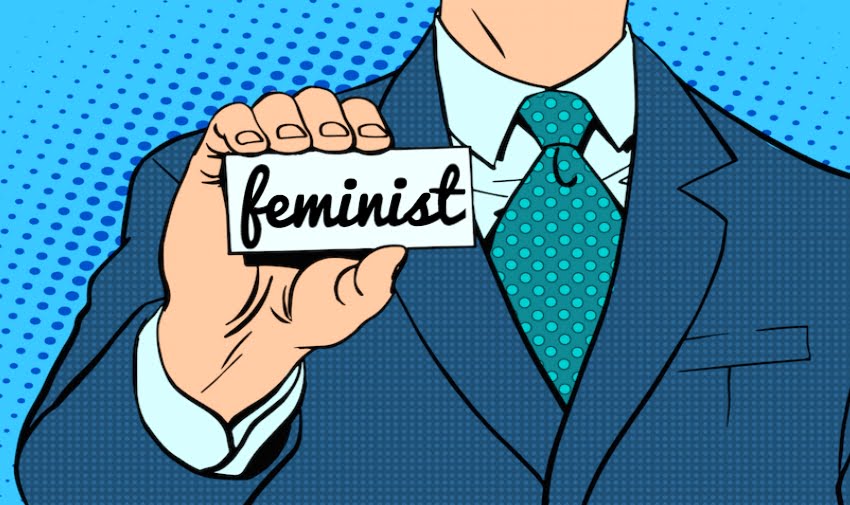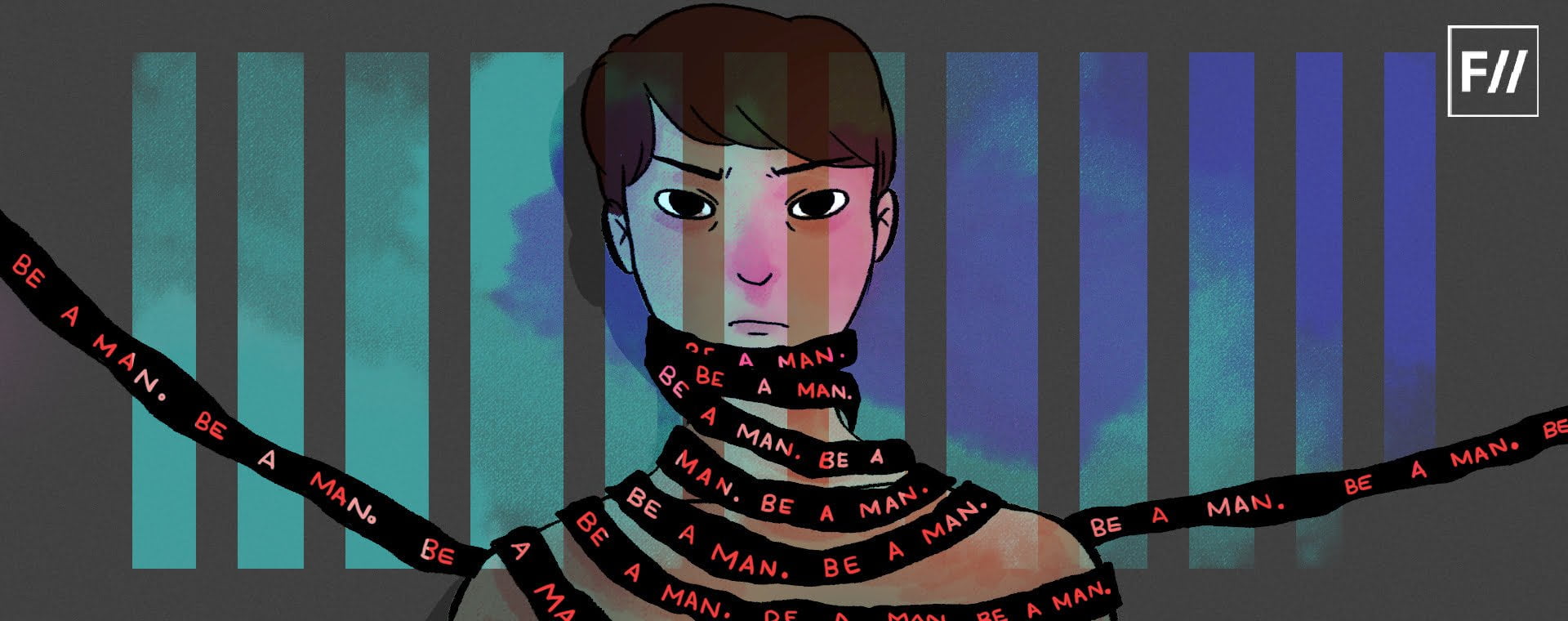I grew up being socialised to construct a masculine identity that was rooted in sexism. As a young south Delhi Punjabi boy, I was supposed to be hyper-sexual, aggressive, cocky, dominating, ‘protective’ of women who are related to me, use abusive language, have a high tolerance for drinking, be brave, look fit and bulked up, being the only son be responsible for the well-being of the family. I played the above-mentioned roles to some degree of ‘success’ and yet disillusionment grew, and I began to realise that the rubric used to measure achievement on the manliness index was based on narrow and flawed ideas that hampered growth, connection and well-being.
Also read: (Re)Making The Man: Masculinity In Hindi Cinema Of The 2010s
Feminism gave me the lens to redefine what my masculinity could look like by allowing me to engage with a framework to introspect on the harmful socialisation that I experienced.
Feminism gave me the lens to redefine what my masculinity could look like by allowing me to engage with a framework to introspect on the harmful socialisation that I experienced. I was unable to articulate my sense of unease and authors like bell hooks gave me the language to name the problem that felt invisible and burdensome. Language allowed for clarity to emerge and see the power over structures at play and how I was a beneficiary of them as well as held hostage by them. This allowed for the genesis of curating a version of masculinity that was independent of the patriarchal idea of masculinity. It also allowed me to see the rights that were taken away from me – the right to be vulnerable and ask for help, the right to have access to my full emotional landscape and the right to form relationships that are based on valuing interconnection and interdependency and not domination.
The study and practice of feminist tendencies that value openness and challenges oppression allowed me to explore and be comfortable in my sexuality.

I could now, as a cis-gendered, heterosexual male understand the various mediums (ads, pornography, tv shows, friends & family etc.) that re-enforced the idea of being hyper-sexual being tied into a masculine identity I had internalised & felt uncomfortable with. I could begin to slowly articulate that I enjoy being in a committed monogamous relationship and my self-worth was not tied into the number of partners I had been with. I began to opt out of the porn-model of performative sexual engagement and could better hear the needs of my partner and begin to share about what my body and mind truly wanted without shame.
Sex for me now became about creating opportunities for bonding, joy and was nurturing of both partners. I found comfort in looking at my body from a healthful mindset versus one that was only a tool to attract others. At a broader level I began to unpack the heteronormativity that was part of my indoctrination and feminist literature exposed me to the nuanced differences between gender identity and expression, sexual orientation and biological sex. The social usage of shaming people into constricted boxes became self-evident and I found voice to talk about the freedom we get by unboxing each other and the damage we do in policing our sexuality and that of others.
My relationships with my family, friends and others began to undergo a paradigm shift when I gave myself permission to form connections that shared power with them. With my family, I was able to re-negotiate boundaries of responsibility so that no one member felt burdened and our family discussions and decisions became more respectful of all voices present. With my sisters I was able to move away from a place of policing them to honouring them as full human beings whose worth was not embedded in being chaste, pure and making decisions that keep the ‘honour’ of the family intact. We were able to offer support to each other to be more in command of our personhood – which included sexuality, financial freedom and other life-choices.
These shifts enabled my relationship with them to expand from being duty-bound to be one of providing thought partnership, seeking counsel, having each other’s backs and creating solid support structure of strength in each other’s lives. In connecting with my male friends, I was able to call out when we related with each other at the expense of women and the problems that surfaced. In connecting with my female friends, the habituation for it to be sexualised was called out and more intimate, platonic relationships were established. My circle of friends began to feel more equitable in nature as we explored healthier and evolving ways of being in relationship with each other, holding each other accountable, offering emotional support in times of need and celebrating each other’s victories as our own.
I learnt from feminist thinking to re-value justice and freedom in ways that uphold the dignity of all human life – by seeing how these values were missing in the spaces I had access to and not just espousing their worth. I could see the protectionism I was taught to offer women around me was stifling for them and that if I wanted to be a courageous & responsible man, I needed to be an ally and not their saviour. The idea of being an ally evolved from being a passive one to be a co-conspirator – to being someone who listens, who works on uncovering their own biases, who boosts the voices of the marginalised and speaks/acts against sexist discrimination.
In beginning to see the effects of the oppressive socialisation on all people, I found purpose in understanding what keeps us stuck and recognising the structures that benefit from the unequal distribution of power. As someone who has consciously chosen to lead a life that explores social justice, the intersectionality of feminism enabled me to look at my own hypocrisy and the different ways in which competing values show up in my life and thus, I began to lead a more authentic life.
Feminism made space for my experiences to be valid and it allowed me to begin broadening the definition of masculinity. It gave me strength to say that I am not governed by my socialisation and can choose to be more, it gave me tools to curate a version of masculinity that was a more fulfilled, inclusive and hopeful whole.
Feminism made space for my experiences to be valid and it allowed me to begin broadening the definition of masculinity. It gave me strength to say that I am not governed by my socialisation and can choose to be more, it gave me tools to curate a version of masculinity that was a more fulfilled, inclusive and hopeful whole.
Also read: Feminist Therapy For Men: A Road Towards Non-Toxic Masculinity
Feminism has given me the gift of re-valuing traditional aspects of my masculinity and know they are not limited to men alone – to look at strength as the power to speak against discrimination of all forms, to embody courage by being vulnerable and having access to all my feelings (not just anger and silence) and to practice leadership by creating holding spaces for people whose experiences are different from mine and amplifying their voices. Feminism made space for me to lead a more conscious male existence and for that I say proudly – I am a feminist.
Sankalp has been an educator for the last 12 years and is a consultant to schools on social & emotional learning, gender sensitisation & teacher education. He is the co-author of the SEL curriculum ‘Identities in Conflict’ that focuses on identity formation through the lens of gender, religion and class structures. As part of his work he leads workshops for students and teachers and enables them to develop more inclusive, respectful, and freer cultures and concepts of self-identity.He can be found on Instagram and Facebook.
Featured Image Source: XYOnline





?
I ll be thankful if writer sees this and answers it.
Your shift of mindset is pleasant to witness. How many times have I not thought meeting someone like this in my real life..But I haven’t been able to, infact I have met only worse.
So I just want to ask one question, how many percent of men can be found who have this kind of thinking? I m asking this coz you are a man, and would have come across more men than me in life. Please ansr accurately. U know what I mean, men who can identify themselves as feminist without any ifs and buts. No shame.